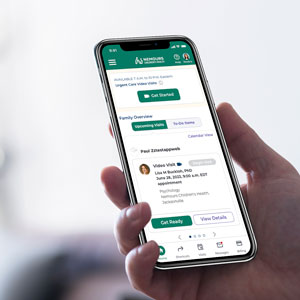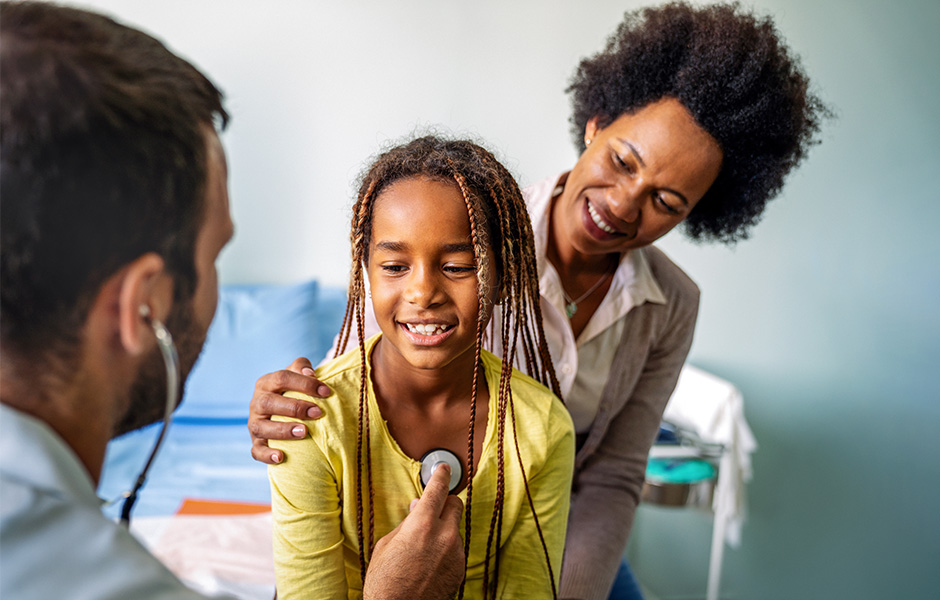Cardiac (Heart) Imaging
- About Us
- Our Care
- Your Visit
Advanced Heart Imaging for Precise Diagnosis and Treatment Planning
If your child has a heart or blood vessel problem, the sooner we can find out what’s going on, the better. Nemours Children’s advanced pediatric heart imaging and diagnostic tests are backed by a wealth of pediatric cardiology expertise.
We offer leading-edge capabilities to find heart problems early, even in babies still in the womb. We use the latest tools like 3D echocardiography, stress echocardiography, heart MRI and heart CT. We’re researching and pushing the boundaries, coming up with new and safer ways to use cardiac imaging.
Our specialists are national leaders who set the standard in pediatric heart imaging. As part of award-winning heart centers in Delaware and Florida, we have vast expertise in detecting the most rare and complex conditions. In fact, doctors around the country have us review images for second opinions on complex cases.
At Nemours, we use methods that ease anxiety and reduce the need for sedation, contrast and IV (intravenous) line placement during imaging. And we think you shouldn’t have to wait for answers. We work to give results as soon as the imaging study is complete through our Nemours app.
Two Leading Pediatric Heart Centers
Our heart centers offer highly advanced, integrated care just for kids and young adults with congenital heart disease. Learn about our focused programs, innovative research and exceptional outcomes.
An echocardiogram uses harmless soundwaves to create pictures of the heart. Learn what it is and how it’s performed from the experts at Nemours KidsHealth®.
A computed tomography (CT) study uses computers and a rotating X-ray machine to take pictures of the body. Learn about CT scans and what to expect.
Getting an MRI is easier when your child knows what to expect. See what an MRI machine looks like and help your child prepare.
- echo
- Genetic Counseling
- DNA
World-Class Heart Cardiac Testing for Kids
We offer the latest technologies, equipment and methods to make heart imaging safe, precise and stress-free. We work closely with your child’s entire care team to help make the most informed decisions.

We’re accredited by the Intersocietal Commission for the Accreditation of Echocardiography Laboratories (ICAEL) for our commitment to quality.
We're researching and developing innovative ways to use imaging in heart disease detection and care for kids.
Most heart imaging is done without sedation, but if needed, our highly trained cardiac anesthesiologists are here for most tests and offer safe sedation methods.
Our Child Life specialists provide play therapy and distraction. For longer tests, like cardiac MRIs, kids can watch movies through virtual reality goggles.
World-Class Heart Cardiac Testing for Kids
We offer the latest technologies, equipment and methods to make heart imaging safe, precise and stress-free. We work closely with your child’s entire care team to help make the most informed decisions.

We’re accredited by the Intersocietal Commission for the Accreditation of Echocardiography Laboratories (ICAEL) for our commitment to quality.
We're researching and developing innovative ways to use imaging in heart disease detection and care for kids.
Most heart imaging is done without sedation, but if needed, our highly trained cardiac anesthesiologists are here for most tests and offer safe sedation methods.
Our Child Life specialists provide play therapy and distraction. For longer tests, like cardiac MRIs, kids can watch movies through virtual reality goggles.
Meet the Team
Nemours cardiac imaging teams are experienced and focused on your child's healthiest future. Meet them now.
-
Abdul Majeed Bhat, MD
Cardiology Associate Professor at Sidney Kimmel Medical College, Thomas Jefferson UniversityPrimary Office
Wilmington, DE -
Mark J. Cartoski, MD
Cardiology Director, Cardiac MRI Program; Director, Advanced Cardiac Noninvasive Imaging Fellowship Assistant Professor at Sidney Kimmel Medical College, Thomas Jefferson UniversityPrimary Office
Wilmington, DE -
Richard Owen Lorber, MD
Cardiology Medical Director, Fetal Heart ProgramPrimary Office
Wilmington, DE -
Shannon Nees, MD
Cardiology Director, Cardiovascular Genetics Program; Associate Program Director, Pediatric Cardiology Fellowship; Co-Chair, Scholarly Oversight CommitteePrimary Office
Wilmington, DE -
Bradley W. Robinson, MD
Cardiology Director, Cardiopulmonary Exercise Lab Associate Professor of Pediatrics at Sidney Kimmel Medical College, Thomas Jefferson UniversityPrimary Office
Wilmington, DE -
Shubhika Srivastava, MD
Cardiology Division Chief Cardiology, Co-Director Cardiac Center; Medical Director, Echocardiography, Congenital Echocardiography, Fetal Echocardiography Professor of Pediatrics — Sidney Kimmel Medical College, Thomas Jefferson UniversityPrimary Office
Wilmington, DE -
Deepika Thacker, MD
Cardiology Medical Director, Inpatient Cardiac Care Unit Associate Professor at Thomas Jefferson UniversityPrimary Office
Wilmington, DE -
Sharon M. Weinberger, MD
Cardiology Assistant Professor at Sidney Kimmel Medical College, Thomas Jefferson UniversityPrimary Office
Wilmington, DE -
Abbas Haider Zaidi, MD
Cardiology Medical Director, Outpatient Cardiology Clinic Clinical Assistant Professor of Pediatrics at Sidney Kimmel Medical College, Thomas Jefferson UniversityPrimary Office
Wilmington, DE
-
Alejandro Redaelli Arevalo, MD
Cardiology Director, Cardiopulmonary Exercise Lab-PensacolaPrimary Office
Pensacola, FL -
Katherine T. Braley, MD
Cardiology Medical Director, Fetal Heart Program, Director of Fetal EchocardiographyPrimary Office
Orlando, FL
Conditions & Treatments
We see many conditions — far too many to list here. The conditions we treat vary depending on the location and providers selected. Don’t see a condition listed? Call us.
Related Specialties & Programs

Convenient Follow-Up Appointments by Video
We offer follow-up appointments through scheduled, live video visits. You can avoid waiting rooms and save travel time. Ask your doctor if this is an option for your family.
What to Expect: Echocardiograms
If your child needs a heart echo, it can help to know what to expect. Learn age-appropriate tips to help your child understand what’s happening and how to make the process a little easier.
Learn More from Nemours KidsHealth®





